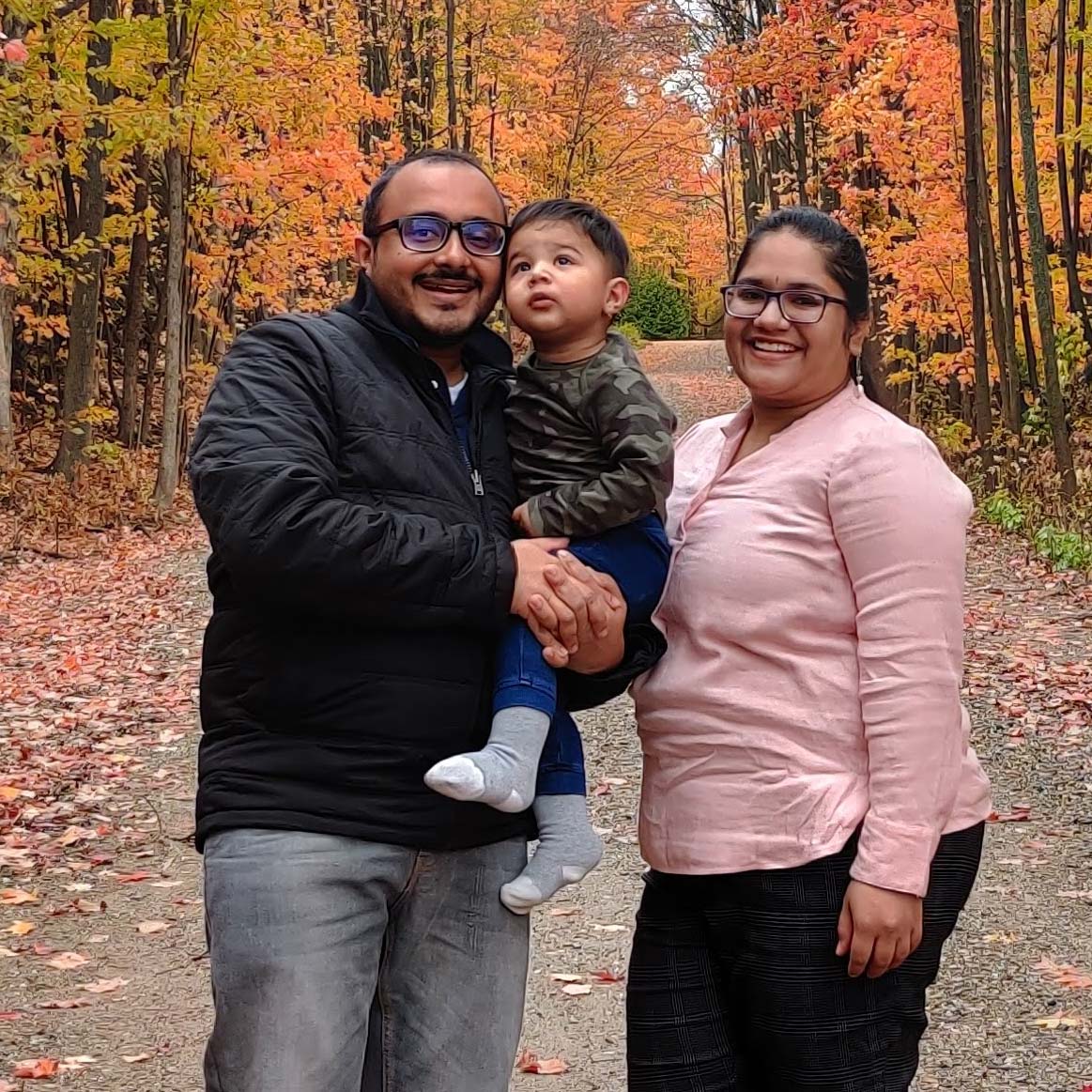Pramod Bhargav enrolled for our pre-arrival services before departing from India for Canada in 2019. “I wanted to know more about what to expect when I land in Canada. Not only did Planning for Canada answer all my queries but they also created a personalized plan for me to follow here. It has worked wonders for me,” says Pramod.
Country of origin: India
Immigrated to Canada in: October 2019
Currently lives in: Toronto
Occupation: Home Furnishing Design Consultant
The immigration policies in Canada were most favourable of all the countries that I considered moving to with my wife and son. Especially the fact that if you come as a permanent resident, you’re not bound to one work; you can explore different jobs. Also, you get almost all the benefits that a citizen would get.
There’s nothing in particular that I dislike. What I really like, however, is the diversity. And that’s a big reason why we chose Toronto as our destination. You see people from different cultures; you don’t feel like you’re an outsider. Also, the people are quite welcoming and open-minded so you can blend in and there’s no pressure to change yourself. It’s also a city with lots of opportunities.
After our tickets were booked and accommodation was all worked out, I reached out to some friends to know more about what to expect when I land. A friend, who had attended the Planning for Canada sessions when she had moved here in 2017, told me all about it. She said they connect clients with employment and settlement agencies and give career-specific guidance, too. The process was straightforward – I enrolled, and they responded. I attended the Planning for Canada session 15 days before we got here, which I’d say was too late. The sessions definitely helped me, but I could’ve used more days, even months, to be honest.
For any immigrant, finding housing and a job in their new country comes at the top of their list of concerns. The Planning for Canada session covered both these topics and also told us how to secure accommodation on lease even if you do not have a job but have the funds to be able to pay rent. They also touched upon using our transferrable professional skills to market ourselves, how to fill that gap of Canadian experience through internships and volunteering, and shared tips for job search.
The person who took our session had been living in Canada for years. She, too, had moved from India and shared her personal experience. She also advised us to stick to our fields of expertise when searching for employment instead of rushing to take up any kind of survival job. And to do it part-time, if necessary, so we are able to focus on our careers. They also gave us an expense breakup so that we could plan our finances with income, rental, food, transport and miscellaneous expenditure in mind. Besides that, we were given contacts of employment agencies and settlement agencies that could assist us in our transition phase.
Thanks to the sessions, I was prepared for any challenges I faced. What was unexpected was this COVID-19 pandemic almost six months after we arrived.
I have a background in architecture and urban design. Luckily, in Canada, I found a job within a month as a Home Furnishing Design Consultant at IKEA in November 2019. So, I’m getting to apply the skill set I had and add to that experience. Eventually, I’d like to move to a more urban design and urban planning role.
The first tip would be to start networking as soon as you receive your invitation to apply for the permanent residency. Connect with a diverse set of people and not just those in your field. Secondly, I would urge immigrants to take a look at loads of bridging programs offered here for specific fields. You can get a reimbursement of the fee for most of these programs. I had participated in the Green Economy Bridging Program for those in the sustainability field. It helped me connect with so many other people. These are also great because your professors can become your reference for interviews. They can vouch for you, as they have seen you participating and presenting in class. So, I would highly recommend bridging programs.
